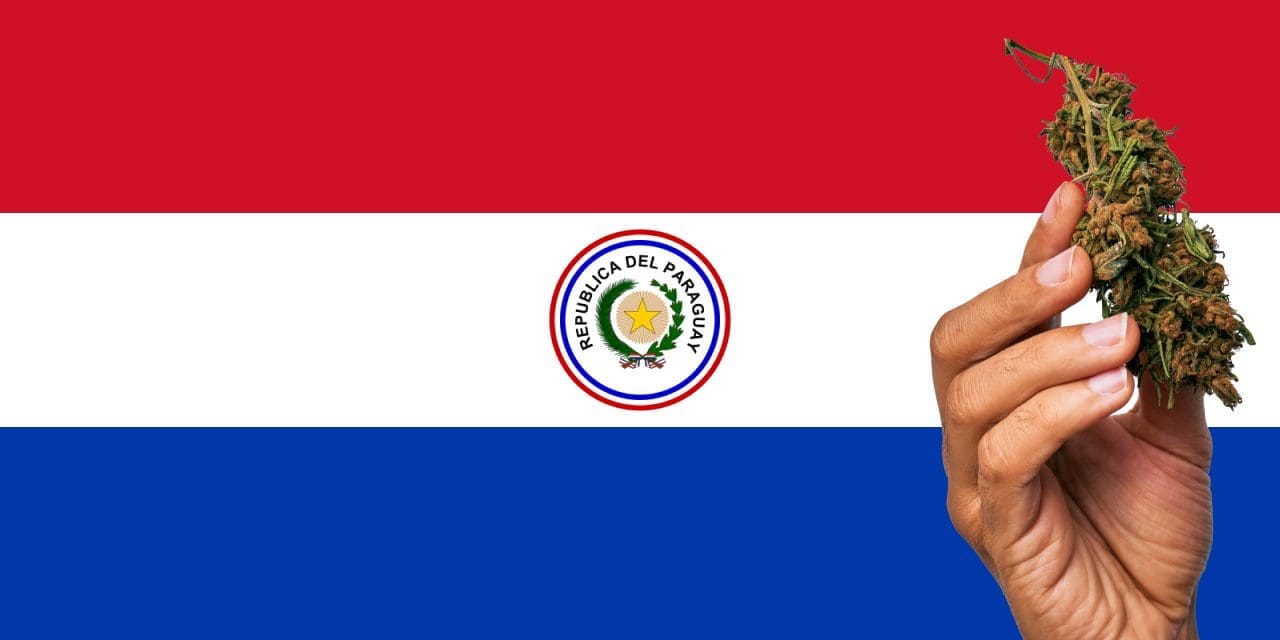Is Marijuana Legal in Paraguay?
3 min read


Paraguay is one of the more progressive Latin American countries with respect to cannabis legalization. Medical marijuana has been legal in Paraguay since 2017.
Recreational cannabis, however, has not been legalized. Still, small amounts of weed were decriminalized for personal use (10 grams or less) in 1988.
Paraguay is also one of the region’s major producers of weed.
Medical Marijuana Laws in Paraguay
Medical marijuana was legalized in Paraguay in 2017 with the passage of Law 6007. Law 6007 created a national program for the medical and scientific study and research of the medicinal use of the cannabis plant.
The law also approved the controlled cultivation of cannabis in Paraguay for medical purposes. Individuals with medical certificates validated by the Paraguayan Ministry of Public Health and Social Welfare are eligible for medical cannabis treatment.
There is no definitive list of medical conditions eligible for medical marijuana. However, the law states that scientific evidence must support its use for any medical condition.
Paraguay issued the first licenses for cultivating, producing, and distributing medical cannabis products to 12 pharmaceutical companies in 2020.
It can take years for companies to build vertically integrated cannabis facilities, achieve certification and begin producing medical marijuana products on a mass scale, which explains why medical marijuana products are still not widely available in Paraguay.
According to recent amendments to the cannabis law, individuals with medical marijuana certificates or their legal representatives may now sow, harvest, and process cannabis plants.
However, in addition to having their certificate validated by the Ministry of Public Health, the property where the weed will be grown must be authorized by Paraguay’s National Anti-drug Secretariat (SENAD). This legal shift has been designed to benefit people with limited resources who may not be able to access cannabis oil imported from overseas.
All medical cannabis cultivation license holders must donate 2% of their cannabis production to the Paraguayan Ministry of Health, which will then distribute those products to domestic patients who may benefit from cannabis treatment. In addition, all cannabis crops grown in Paraguay must contain 0.5% THC or less, or they will be destroyed.
What to Know about Cannabis in Paraguay
Small quantities of cannabis for personal consumption have been decriminalized in Paraguay.
In 1988, Article 30 of Law 1340 exempted individuals found with 10 grams of cannabis or less from punishment. According to the article, those who are found with more than 10 grams may be punished with between two to four years in prison.
Paraguay is the main cannabis producer in South America and one of the world’s largest weed exporters. However, much of the weed that is produced in Paraguay is of questionable quality.
Paraguayan cannabis is commonly compressed into “bricks” to make it easier to smuggle across borders into neighboring countries.
These bricks are often tainted with chemicals, pressed with unsanitary machinery, and often wet when compressed, encouraging the growth of fungi.
Paraguayan authorities have recently undertaken efforts to destroy illicit quantities of cannabis in Amambay, on the border of Brazil.
According to the United Nations 2022 World Drug Report, the rural department of Amambay has long been Paraguay’s marijuana production hub. Most marijuana produced in Amambay is trafficked to Brazil, where it can sell for as much as $150 per kilogram.
Can You Grow Cannabis In Paraguay?
Paraguay’s status as the largest illicit cannabis producer in South America may be partly due to its unique cultivation conditions. The country boasts fertile red soil that can yield vast quantities of cannabis, with some plots allowing multiple cannabis harvests annually.
However, commercial marijuana cultivation is illegal in Paraguay except for those with licenses.
Nonetheless, illicit weed is grown widely throughout the country by small-scale farmers. There are harsh penalties for those caught. Individuals guilty of illegal cannabis cultivation may be sentenced to up to 15 years in prison.
However, approved individuals may grow weed following a 2020 amendment to the law that decriminalized private marijuana cultivation for medical use.
However, these individuals must have an authorized medical certificate.
The Bottom Line
In 2017, Paraguay launched a national program to research the medical benefits of cannabis and legalized medicinal use.
However, the South American country is still in the process of launching its medical cannabis program.
Recreational weed is illegal in Paraguay, although quantities of 10 grams or less have been decriminalized for personal use.